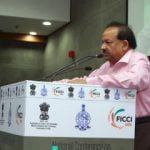
 ‘
‘
Today, more and more women are choosing to get pregnant later in life. The usual age group has moved from 25-30 years to 28-35 years. Advanced medical facilities along with fertility solutions have made it easier for many to consider a late pregnancy.
IVF and fertility specialist, Dr Priti Gupta, First Step IVF Clinic, New Delhi, says, “There are several conditions like asthma, diabetes, sexually transmitted infections and obesity that may deter pregnancy.”
In order to avoid unnecessary complications during pregnancy, it is advisable to undergo a routine check-up such as regular prenatal tests. It is also essential to have a healthy diet, take vitamins, maintain a healthy body weight, and quit alcohol and smoking.

Dr Madhu Goel, senior gynecologist, infertility specialist and associate director, Fortis La Femme, New Delhi, says, “The ideal time for pregnancy is between 25 to 30 years.”
Dr Gupta adds, “Pregnancy at a later age poses higher chance of issues such as miscarriage, high blood pressure, gestational diabetes, problems with the placenta, stillbirths, abnormalities like Down Syndrome, etc. Also, it can be difficult to get pregnant after 35. The reproductive system is such that the quality of eggs starts deteriorating after 35. So, chances of spontaneous pregnancy as well as chances of successful IVF also diminish. The best phase to conceive naturally is between 25 and 30.”
However, if you opt for pregnancy later in life, all is not lost. Plan ahead. There are various options available:
Egg freezing: This viable option involves storing a woman’s unfertilized eggs for future pregnancy. “According to data published in international papers, there is an approximate 6-12% chance of full-term birth per egg”, says Dr Goel.
Embryo freezing: If you are a couple, you can freeze embryos in liquid nitrogen at an approximate temperature of -196 C for several years. “In this, the eggs are taken out, fertilised and the embryos are frozen. Success will depend on the quality of the embryo and the age of the patient at the time of procedure”, says Dr Goel.
Artificial insemination: If you have not opted for freezing and you are unable to get pregnant, you can try IVF (In Vitro Fertilization) or ICSI (Intracytoplasmic Sperm Injection) .” Multiple eggs are collected from your body, fertilization of eggs and sperm is done in the laboratory and after successful fertilization, the egg is implanted into the womb,” says Dr Gupta. The success depends on age, egg quality, previous history, etc. “One can also try IUI (Intrauterine Insemination) in which ovulation is stimulated and sperms are placed in the uterine cavity after washing”, she adds.
Donor eggs: There are some women who have problems with damaged ovaries or poor quality eggs. They can opt for donor eggs. “Here, the eggs are taken from the ovaries of the donor. They are fertilized with the partner’s sperms and then the embryos are put in female partner’s womb. Since donors have better quality eggs, the chances of success are higher,” says Dr Gupta.
Surrogacy: “If the female partner is unable to carry pregnancy for any medical reason, she can opt for surrogacy where a healthy woman is chosen as a surrogate to carry the pregnancy” says Dr Goel.
[“source=hindustantimes”]




